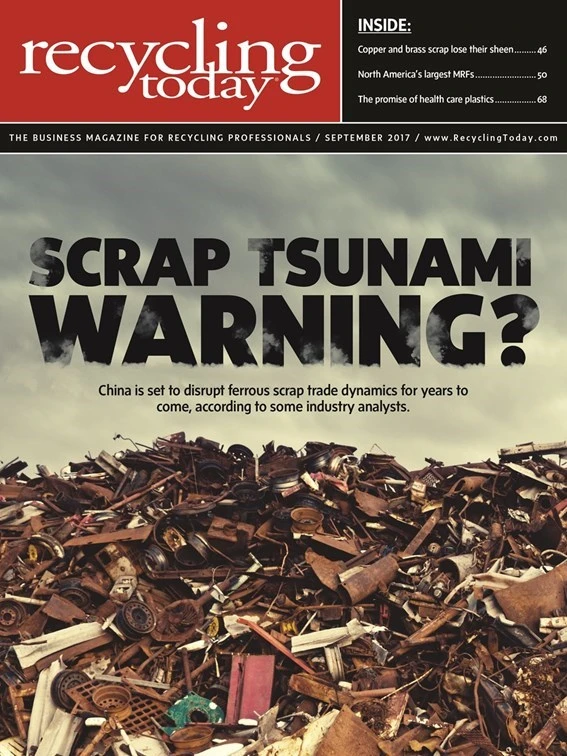
In late August, China announced that some 24 types of materials, including several types of postconsumer plastic scrap, will be prohibited from entering the country as of Dec. 31, 2017.
Steve Wong, who is the executive president of the China Scrap Plastics Association (CSPA), a member of two Bureau of International Recycling (BIR) committees and the chairman of Hong Kong-based plastics recycling firm Fukutomi Co. Ltd., cites an announcement issued jointly by five Chinese government agencies as the source for the information.
Plastic scrap materials within the categories of production scrap, offcuts and regrind will be allowed to enter China in 2018, according to the latest market update from Wong.
The Aug. 16, 2017, announcement issued by the Ministry of Environmental Protection (MEP), the Ministry of Commerce, the Development and Reform Commission, the General Administration of Customs and the AQSIQ (General Administration of Quality Supervision, Inspection and Quarantine) is known as Announcement No. 39 of 2017. It spells out 24 scrap items that will move from being restricted to outright prohibited but leaves other types of scrap off that list.
The agencies say that in efforts to comply with the Basel Convention on the Control of Transboundary Movements of Hazardous Wastes and their Disposal, China’s Environmental Pollution Prevention and Control Law for Solid Waste and other Chinese government measures, they have targeted 24 items that will move from restricted to outright, prohibited, including eight types of postconsumer plastic scrap.
How recyclers in North America respond to these changes remains to be seen. In the meantime, scrap generation in the U.S. is characterized as being good, according to industry sources.
A representative of an international recycling and compounding company who is based in the Great Lakes region says that while postindustrial generation in the automotive manufacturing sector is slowing as of late August, the construction sector was picking up.
A broker based on the East Coast also points to a seasonal pickup in
However, China’s National Sword customs inspection regime continues to affect the movement of some recovered plastics, particularly postconsumer material. “The door to China is shut, so there is lots of material available, particularly film and lower-grade scrap,” the source in the Great Lakes region says. However, he adds that engineering grade plastics still are moving into the country.
Also referring to the Chinese market, the broker says, “Orders have dried up, and many MRFs (material recovery facilities) are not willing to assume the risk associated with shipping into China at this time.”
Regarding domestic demand, the recycler and compounder

Explore the September 2017 Issue
Check out more from this issue and find your next story to read.
Latest from Recycling Today
- Balar Equipment to operate under Enviro-Clean Equipment name
- Li-Cycle reports 2024 financials
- Wisconsin Aluminum Foundry acquires Anderson Global
- PureCycle, Landbell Group working to advance PP recycling in Europe
- S&P Global launches mixed plastic scrap pricing for US, Europe
- Organizations call for coordination on product safety
- Circular Services acquires Waste Recycling Inc.
- Aqua Metals issues 2024 progress report





